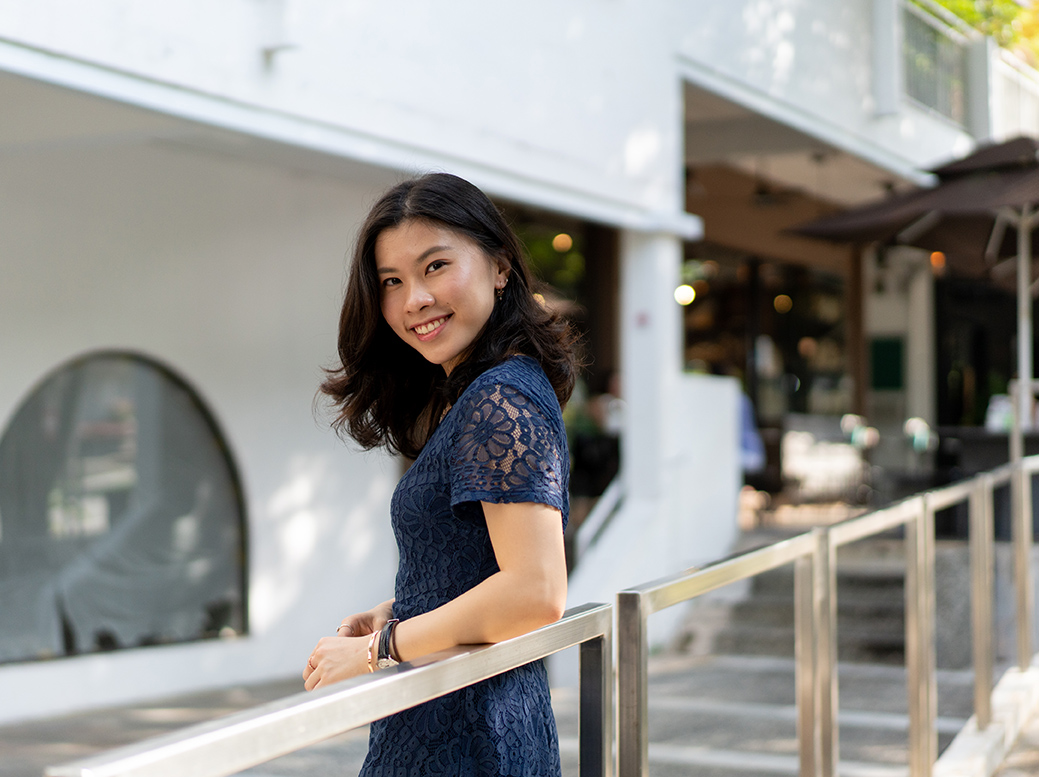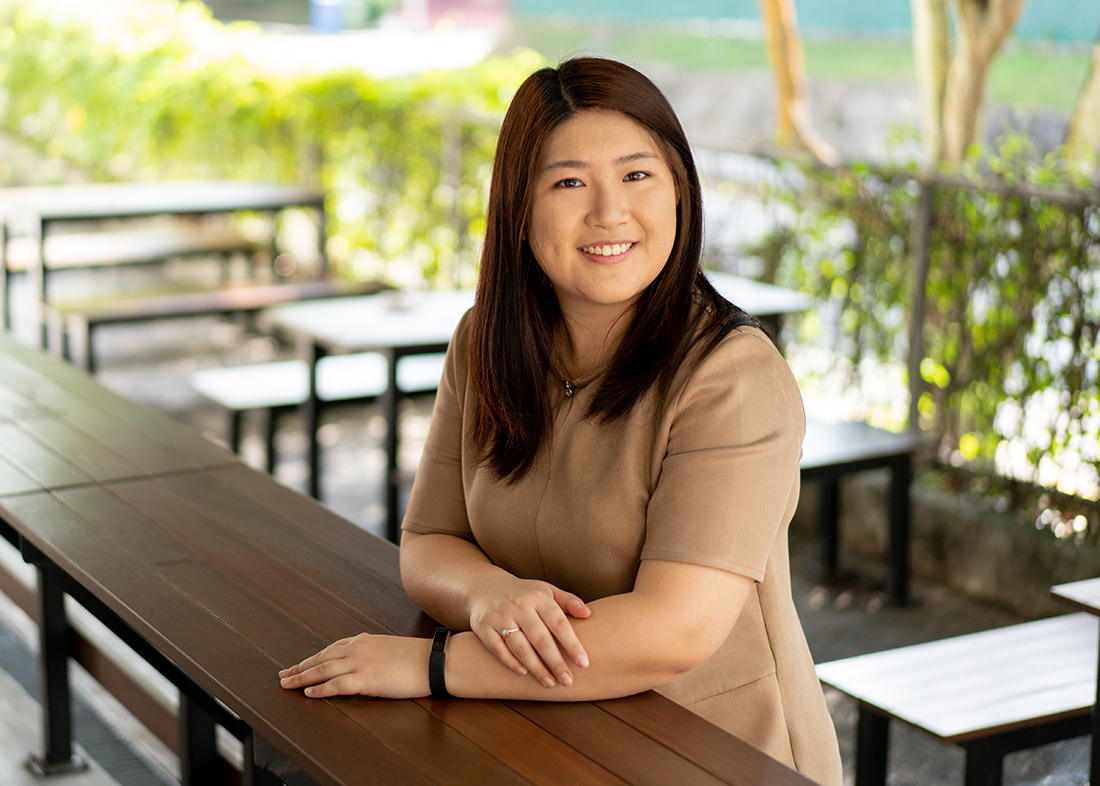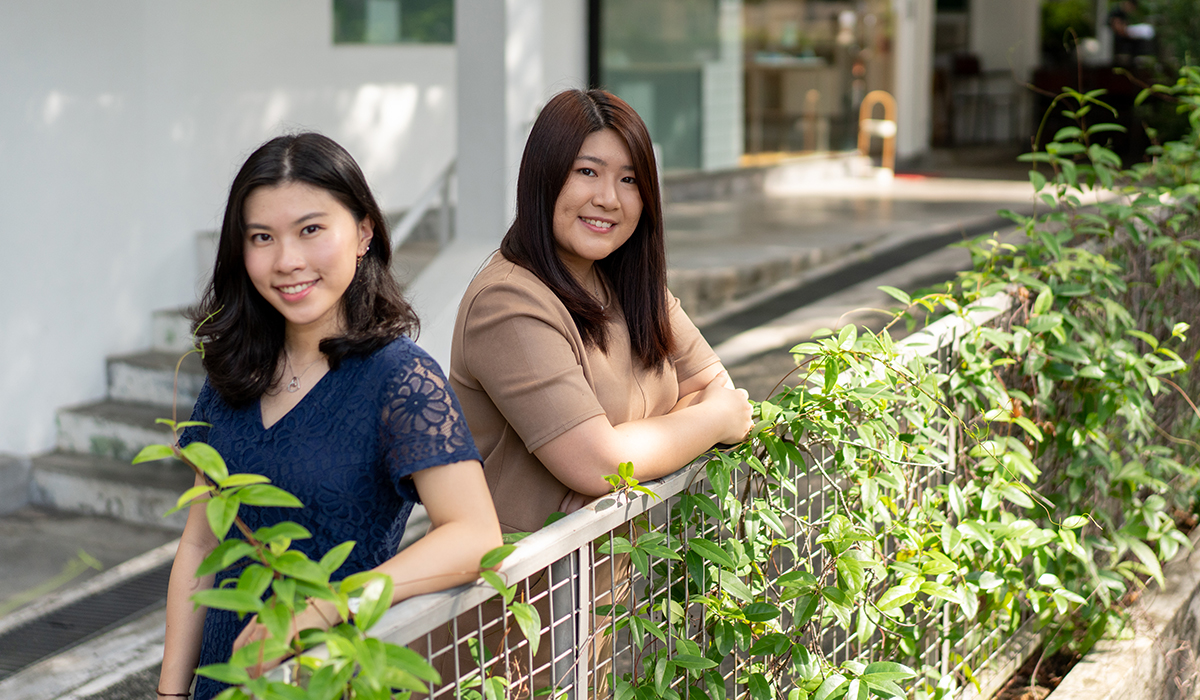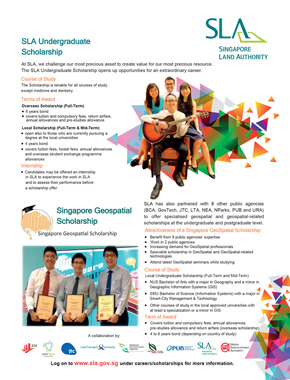L IMITED LAND • UNLIMITED SPACE
The Singapore Land Authority (SLA) vision is a creative
paradox that aptly highlights the land constraints in Singapore,
and SLA’s commitment in addressing them.
The statutory board plays both developmental and regulatory roles; it optimises land resources for the economic and social development of Singapore through interim use planning, while also looking after the registration of property transactions in Singapore. Here, new ideas on land and resource management are given room to flourish for the betterment of Singapore.
Driving these ideas is an adept and multi-disciplinary team, who use their range of expertise to drive the SLA vision and mission. Teo Min Shuen, 25, and Kimberly Pang, 24, give us a glimpse into how their work at SLA makes a difference.
What are the key qualities required in your line of work?
Kimberly: In our day-to-day work, we deal with different groups of stakeholders; individuals, companies, property agents, and lawyers. In order to enhance their journey, it’s important that we remain customer-centric.
Having the necessary technical competencies also play a big part in helping us to deal with the wide range of issues that arise in the course of administering the Residential Property Act. For example, a background in real estate or law have proven useful especially as issues become increasingly complex. Data analysis skills are also key as we leverage technology and data to strengthen decision-making.

Kimberly Pang Li Ting
SLA Overseas (Full Term)
Undergraduate Scholarship
Principal Executive,
Land Dealings Approval Unit
Bachelor of Laws (LLB)
– King’s College London, UK
Tell us more about what you most enjoy about your job, Min Shuen.
Min Shuen: One of the most rewarding parts of my job is how it allows me to interact with numerous stakeholders from both the public and private sector. At various stages of our work, we work closely with other government agencies while managing private stakeholders’ needs to ensure seamless and efficient service delivery.
The dynamism of our work also makes my job enjoyable. Every case has its unique circumstances which can sometimes be challenging as we need to think out of the box and reach a consensus through comprehensive discussions – but this also makes the processing of each case fresh and exciting.
What made you decide to sign up for the SLA Undergraduate Overseas Scholarship?
Kimberly: Since I was young, I’ve been interested in pursuing a career in the public service. I was especially interested in the work of SLA as land is such a fundamental resource, yet it is one which Singapore lacks. I was intrigued to find out how we could optimise this scarce resource and hoped to be able to play a role in doing so for Singapore’s continuous development.
Min Shuen: While land is one of the most important factors of production, Singapore does not have the luxury of underutilising or squandering its limited land resources. As a statutory board which also serves the role of a custodian of state land, a scholarship and career at SLA can offer valuable insights into land policy, particularly on how land use can be maximised through transformation of spaces that can serve economic and social needs.

Teo Min Shuen
SLA Local (Mid Term) Undergraduate
Scholarship
Principal Executive,
Land Sale (Private)
Bachelor of Social Science in
Economics and Political Science
– National University of Singapore
How has the scholarship benefitted you?
Kimberly: Knowing what I was going to do once I graduated meant I knew exactly what I wanted to focus on in university. This certainty allowed me to choose modules which I knew would be useful in my working life, with room to explore other topics that were of interest.
As SLA encourages us to be exposed to much more than our day-to-day routine work, I’ve also had the opportunity to take on additional projects that have allowed me to see the work we do from a different, wider perspective. This has enabled me to understand better the role that SLA plays in shaping Singapore’s development, and to understand why certain decisions are made.
Min Shuen: The scholarship has enabled me to think about land in a more nuanced way. It has given me the opportunity to more deeply understand Singapore’s needs and challenges; everything from basic social needs to economic endeavours is connected to land.
In addition, I was given the opportunity to coordinate the corporate work plan for my division, where initiatives or policy reviews were undertaken and refined to better meet SLA’s mission. Working with both my peers and senior management in this process has allowed me to not only understand ground sentiments, but also look at the bigger picture and the overall vision of the entire organisation, and is an extremely rewarding and valuable experience.
What would you tell someone who’s looking into the scholarship and working under SLA?
Kimberly: Is this an area in which your interest lies or that you’re passionate about? Is the work environment somewhere you can see yourself learning and growing in? Do you want to make a meaningful impact in your life? Consider these things when making your decision. The best way to find out if you’re ready and willing for the commitment to the organisation is to do an internship in SLA.
Min Shuen: Your career will be impacted by your decision to take up a scholarship. Hence, aspiring scholars should do thorough research on the vision, work, and culture of the organisation. Being immersed in the daily work environment of the organisation through an internship would provide valuable insights to guide your decisions. You should consider if your strengths and aspirations are a good fit with the organisation. Having genuine passion and excitement for the work in the organisation is equally important.


